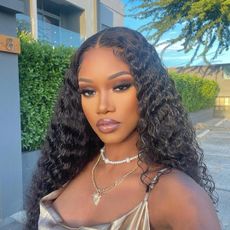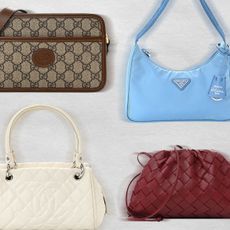Hands Down, These Are the Best Carbs to Eat
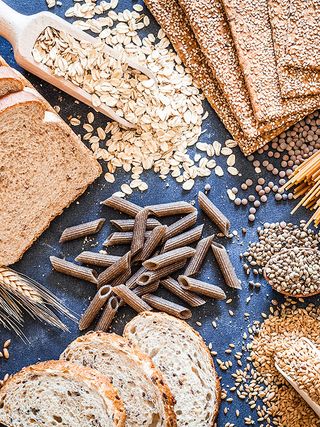
It's not hard to deny that carbs have gotten a bad rap for years. There are countless diets and eating plans that absolutely forbid the stuff. "Low-carb" is a buzzword that's found on everything from food packaging to menus. It's even infiltrated the pop culture space—anyone remember Regina George's question in Mean Girls, "Is butter a carb?" Pretty much, the general consensus is that carbs are evil.
Now, we're not saying all the bad press is unfounded, because there are some carbs out there that won't do you any favors in the health department, but believe it or not, all carbs are not created equal.
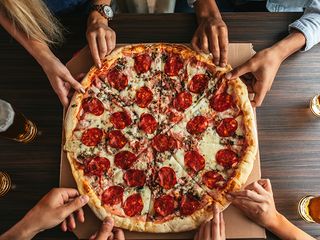
First things first, there are two kinds of carbs in this world: simple carbs and complex carbs. Robin Foroutan, MD, RDN, HHC, a spokesperson for the Academy of Nutrition and Dietetics, says that carbohydrates are strings of sugars chemically bonded together; the complexity of the bonds determines what kind of carb it is. When consumed, they get converted into glucose and are used as a type of fuel for our body. Carbs are an important part of a balanced, healthy diet; you just have to be mindful of what types of carbs you introduce into your eating plan, and consume in moderation.
"Simple carbs, things like refined grains, sugar, those kinds of foods that we usually recommend people to minimize, those bonds break apart really easily, and so our bodies can get a fast surge of glucose and energy from that," she explains. "The problem is that if the bonds break apart too fast, that's when we see the spike in blood sugar and then the corresponding drop, which leaves us hangry, hungry, more irritable." You might experience lethargy or a sugar crash after consuming.
As for complex carbs, Foroutan says they contain more bonds and are more difficult to break. "That's when you get the slow and steady energy, and then the slow and steady blood sugar decline," she says. "That's really what we're looking for in terms of blood sugar balance. Those are the slow-burning carbohydrates, which are always the best ones. They're going to be found in whole grains, starchy vegetables. Vegetables, in general, have carbohydrates too, even the ones that we consider non-starchy."
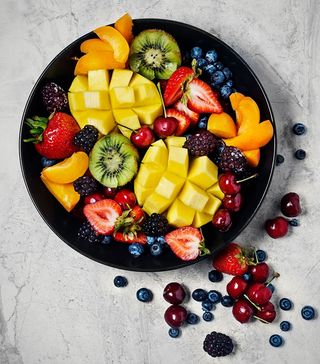
Okay so now you might be thinking, okay, simple carbs are the "bad," ones and complex carbs are the "good" ones, but that's not quite true. Fruits can contain simple carbs but also contain other important nutrients and fiber, which affects blood glucose in a different way by releasing into the bloodstream slowly, according to Harvard Health Publishing. When choosing a carb, Foroutan recommends looking for whole foods, rather than refined or overly processed options.
She also says you should think about your meal as a whole and consider any other nutrients the carbs you're eating contain. For example, root vegetables contain carbs but they also have vitamins, minerals, and antioxidants. "Blood sugar really also depends on what else you have at that meal," Foroutan explains. "If you have protein together with a carbohydrate, it slows the rate of how long it will take and how fast the carbohydrate will hit your bloodstream. So you've slowed things down by just adding protein to the meal."
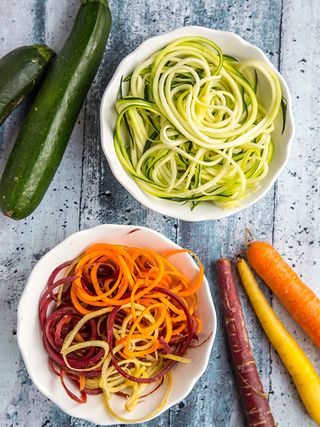
You also might be reading this while you're on a low-carb diet and thinking you might be missing out on all those nutrients in the "good" carbs. But Foroutan says you don't have to worry too much about it, especially if you're being smart and safe with your eating plan. "As long as your energy levels are good, then you're in good shape," she says. "You're definitely still going to be getting carbohydrates from vegetables and fruits. As far as starchy grains, if your body's very depleted in carbohydrates, it can make carbohydrates from the other things that you eat. It's called gluconeogenesis. Your body can make glucose from other things, but then when you're on a low-carb diet, your body is using glucose, but it's also using ketones. That gives a metabolic flexibility that is healthy to have."
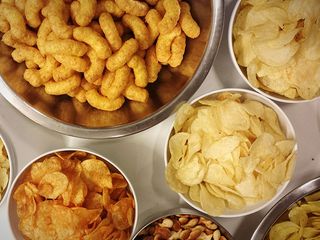
And for those of us who enjoy a piece of cake or a bag of chips from time to time, are we really putting ourselves in big danger with these "bad" carbs? Is the bad rap real? Yes, if you overdo it. "When you spike your blood sugar like that, it stresses out the body," Foroutan explains. "If you have too many carbs for what your body can metabolize easily, you end up having higher triglycerides. Cholesterol will go up. Your risk of heart disease goes up. Your risk of nonalcoholic fatty liver goes up. There are significant metabolic effects and potential health risks to eating too many refined carbohydrates."
While it's not exactly recommended to go HAM on these types of carbs, if you do decide to indulge, consider how you are consuming them. "Even if you decide that you're going to have a lovely piece of white French bread at a restaurant at the beginning of the meal, if you put butter on it, that slows the absorption of the carbs," she says. "Even time of day matters. The sugar and the carbs that you eat at night have a bigger effect on blood sugar than the ones that you have earlier in the day." Don't beat yourself up if you have a "bad" carb, but it's not advised to overdo it. And, if you have a disease like diabetes, you'll want to avoid the "bad" carbs altogether.
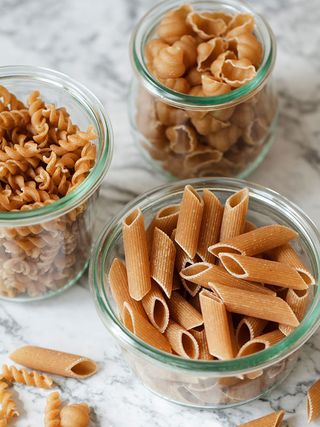
The gist of all of this? Carbs are an essential part of the diet, but you've got to be choosey. And like everything in life, moderation is key. So, if you're looking for ideas on what carbs to add to your diet and ones to avoid, or limit, take a look at a few below.
"Good" Carbs
1. Brown Rice
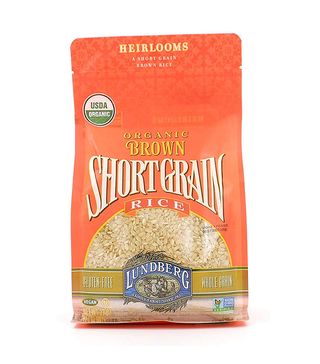
Brown rice is whole and least processed, according to Foroutan. "You also have brown rice pasta, which takes the brown rice and then mills it," she says. "So it hasn't lost any nutrients, but you've changed the surface area. Now, it changes the effect that it has on the gut microbes. And probably to a certain extent, it affects blood sugar as well, just because now you've milled it into a flour, but not as much as white rice or a pasta made from white rice."
2. Bananas
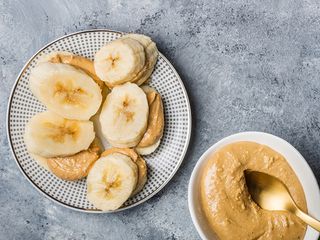
Fruit like bananas, mangoes, and apples contain high amounts of carbs, but they also have plenty of other nutrients like potassium, vitamin C, and fiber.
3. Oats
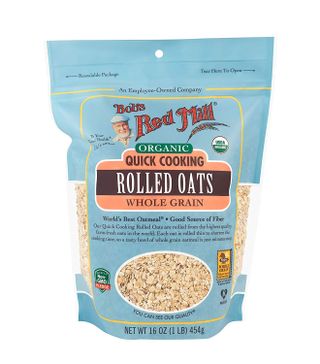
Oats are a whole-grain complex carb that's a great breakfast option.
4. Sweet Potatoes
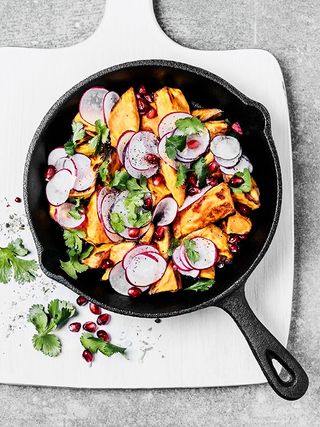
Sweet potatoes are a whole food that is better digested. "Your digestion works on it slowly, and so because it takes longer to digest, it releases the carbohydrates from that food in a slower way, slower and steady," Foroutan says.
5. Quinoa
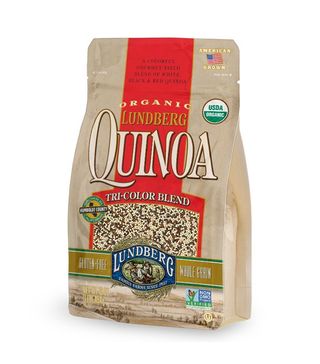
"Quinoa is a pseudo-grain and so is wild rice. Those kinds of starchy whole grain yummy things—they have a lot to offer nutritionally," Foroutan says.
"Bad" Carbs
1. Chips
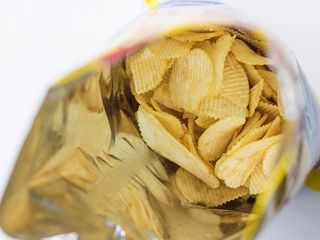
Snack foods are refined carbs that are stripped of fiber and protein, and it makes your glucose levels spike quickly, according to The Cleveland Clinic.
2. Cookies and Cakes

Harvard Health Publishing recommends limiting the amount of refined sugars like high-fructose corn syrup, corn syrup, agave, honey, and white and brown sugar. Of course, these sugars are found in pastries and other desserts.
3. White Bread
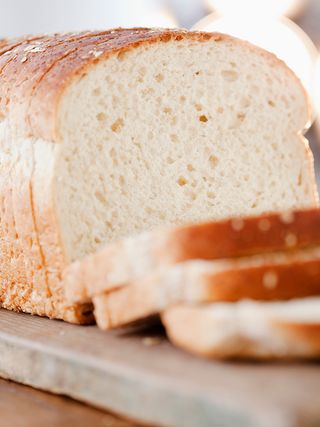
White bread is refined, which can spike your blood sugar and then drop it down, Foroutan says.
4. White Pasta
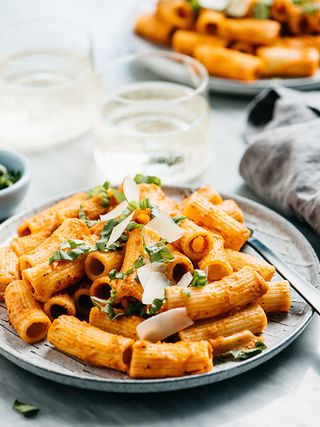
Like white bread, white pasta is also refined. Still want your pasta fix? Opt for whole-grain.
Next up: 7 Trans Fat Foods You Should Avoid at All Costs
This article was originally published at an earlier date and has been updated.
Disclaimer
This article is provided for informational purposes only and is not intended to be used in the place of advice of your physician or other medical professionals. You should always consult with your doctor or healthcare provider first with any health-related questions.
Sarah is lifestyle writer and editor with over 10 years of experience covering health and wellness, interior design, food, beauty, and tech. Born and raised in Los Angeles, she attended New York University and lived in New York for 12 years before returning to L.A. in 2019.
In addition to her work on THE/THIRTY and Who What Wear, she held editor roles at Apartment Therapy, Real Simple, House Beautiful, Elle Decor, and The Bump (sister site of The Knot).
She has a passion for health and wellness, but she especially loves writing about mental health. Her self-care routine consists of five things: a good workout, “me” time on the regular, an intriguing book/podcast/playlist to unwind after a long day, naps, and decorating her home.
-
 I Live for Yoga and Pilates—These Are the Pieces That Help My Flow
I Live for Yoga and Pilates—These Are the Pieces That Help My FlowTake notes.
By Humaa Hussain
-
 It's Time to Get Our Nutrition in Check for Summer—This App Is Making It Easy
It's Time to Get Our Nutrition in Check for Summer—This App Is Making It EasyThe recipe ideas are endless.
By Who What Wear
-
 If You're Battling With Digestive Issues, This Could Be Why
If You're Battling With Digestive Issues, This Could Be WhyTurns out, you may not have IBS after all.
By Kia Topps
-
 Our Editors Own a Lot of Sneakers, But This Pair Comes in First Place Every Time
Our Editors Own a Lot of Sneakers, But This Pair Comes in First Place Every TimeA major win.
By Aniyah Morinia
-
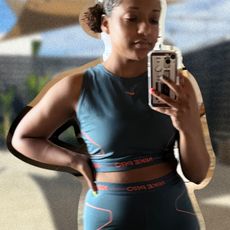 I Changed My Mind About Strength Training When I Tried This Workout
I Changed My Mind About Strength Training When I Tried This WorkoutMy confidence is officially on 10.
By Kia Topps
-
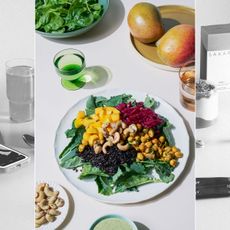 I Only Ate Sakara Life Meals for 30 Days—Here Are 7 Things That Happened
I Only Ate Sakara Life Meals for 30 Days—Here Are 7 Things That HappenedThe brand's 30-Day Fall Reset is finally here.
By Erin Jahns
-
 This Type of Gear Will Take Your Workout to the Next Level
This Type of Gear Will Take Your Workout to the Next LevelBring it on.
By Sarah Yang
-
 6 Essential Oils That Will Heal Your Painful Sunburns
6 Essential Oils That Will Heal Your Painful SunburnsAll-natural relief ahead.
By Samantha Parsons
